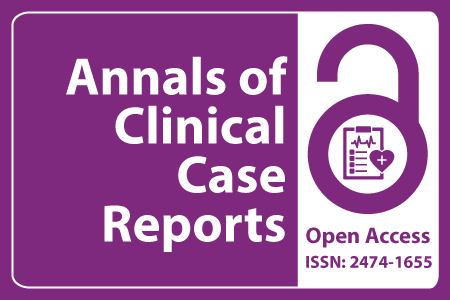
Journal Basic Info
- Impact Factor: 1.809**
- H-Index: 6
- ISSN: 2474-1655
- DOI: 10.25107/2474-1655
Major Scope
- Allergy & Immunology
- Sleep Medicine and Disorders
- Depression
- Pediatrics
- Urology Cases
- Pathology
- Cardio-Thoracic Surgery
- Physiology
Abstract
Citation: Ann Clin Case Rep. 2023;8(1):2475.DOI: 10.25107/2474-1655.2475
Benefit of Pharmacogenomic Testing in a Patient with Refractory Gastroesophageal Reflux Disease: A Case Report
Wick JA1, Pierson E1, Schmidlen T2, Grande K2, Moretz C2, Ashcraft K2, Green J2, Moyer N2 and Blaxall BC1*
1The Christ Hospital Health Network, Ohio, USA
2Invitae Corporation, California, USA
*Correspondance to: Burns C Blaxall
PDF Full Text Case Report | Open Access
Abstract:
Background: Pharmacogenomics is the branch of genetics that evaluates potential drug-gene interactions. Genetic variation may affect patient exposure, efficacy, and tolerability of medications. FDA PGx labeling exists for >100 medications across most specialties and evidence-based, actionable guidelines are published by the Clinical Pharmacogenomics Implementation Consortium (CPIC), including guidelines for several Proton Pump Inhibitors (PPIs) in the treatment of Gastroesophageal Reflux (GERD). Here we describe a case of refractory (GERD) successfully treated using a nextgeneration PPI therapy guided by PGx. Case Report: A 55-year-old female with a 12-year history of GERD had unresolved symptoms. The patient had seen various specialists, experienced endoscopies with biopsies, and had no symptom improvement despite trialing various PPIs and supplementation with additional medications. After PGx testing, the patient was found to be CYP2C19 *1/*17 genotype, rapid metabolizer phenotype and was initiated on rabeprazole, a PGx-appropriate PPI based on her CYP2C19 metabolism status. This resulted in long-standing (>1 year) resolution of GERD symptoms and lifestyle modifications. Conclusion: Variations in drug metabolism can affect patient outcomes. This has been well reported for many indications. This case reports a patient with GERD refractory to standard treatment who experienced symptom resolution with PGx-directed treatment. Prospective studies to further evaluate the utility of PGx as standard of care for treatment are needed.
Keywords:
Cite the Article:
Wick JA, Pierson E, Schmidlen T, Grande K, Moretz C, Ashcraft K, et al. Benefit of Pharmacogenomic Testing in a Patient with Refractory Gastroesophageal Reflux Disease: A Case Report. Ann Clin Case Rep. 2023; 8: 2475..













